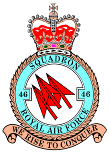|
forward line. We had a very good team and won many games. The only trouble was our boots; we didn't have proper boots so we had to use our issue ones, not really the best of footwear for the game. At least I had the honour of playing for the squadron. When not on night duty most of our evenings were spent having a fry-up. Nearly every tent had a primus stove and with a few potatoes from the cookhouse cut into chips, a slice of margarine and a few eggs bought off the Arabs, we were all set up for an evening meal. We had no trouble obtaining paraffin; we had found a dump of the stuff in four-gallon tins out in the desert. You could find nearly everything you wanted out in the blue. One day one of our Armourers, ever-smiling Nobby Clark, came back towing a small anti-tank gun. One day our Engineering Officer rode up on a motorcycle with sidecar: it had been captured from the Germans. He said, "Watch this" and putting it into gear he rode it backwards. We had never seen any1hing like it before. It was a wonderful piece of engineering. It also had a shaft drive instead of the usual chain drive. One thing you had to look out for was Italian anti-personnel mines. They were quite small, red in colour so easily seen but very deadly. Some chaps lost a foot when they tried to use them as footballs. When not on duty in the afternoons a truck would take us down to the sea for a swim. The sea around Tobruk was the clearest I have ever seen, it was aquamarine in colour. It was nice just to lie in the water and feel clean again. Whilst there in the desert something happened to me that I never thought would - I became lousy. After a few days of itching I took off my underpants and there in the seams were lice. A good soaking in 100 octane petrol soon put things right. All our clothes were washed in petrol. Every day the water bowser would go to Bardia to get fresh water. It was a day's journey there and back, so water was never wasted. One of the units on the station had a German plane, a 109 ME. They were trying to get it in flying trim again. After many days of working on this plane they at last got it ready to fly. A pilot was found to fly it. He taxied it to the strip and took off amid loud cheers. It was flown round a few times but unfortunately on landing the undercarriage gave way and it slithered on its belly and came to rest. So that put an end to any more work on it. Near Tobruk was a crashed German JU52, which we went to have a look at and I was surprised to see the name "Dunlop" on its tyres. I must say that this time in the desert was not too bad. I was very fit; we were very busy at night but days when not on duty were very leisurely. Whilst we were there I didn't draw any pay - nothing to spend it on - so with the saved cash I again purchased Savings Certificates. There was a certain something about the desert. At times it was so quiet, no rustle of the trees (no trees!), no bird song. hot by day, cold at night. A shimmering horizon all day long. A light breeze whipped up little spirals of sand (sand devils). No flowers, only those made by man (desert lilies). When the Khamseen wind blew it brought sand storms. You could see it coming like an advancing wall. All air intakes on the aircraft had to be covered and all engines too. All you could do was sit it out in your tent, maybe for hours or even days. Sand everywhere. I remember holding my hands out with fingers spread watching electricity jumping across my fingers. Eating and drinking was a bit of a problem. Everything just stopped until it passed. The time on this detachment was over three months. We left again to return to Idku on 25 May 1943. Chapter 7On 4th June 1943 I was promoted to Corporal. I would like to think that it was a reward for my work on both detachments up the desert and, of course, it was another rise in pay. I was now paid 8 shillings and 10 pence per week (44p in today's money) but would you believe it, I now had to pay Income Tax. They certainly wanted their pound of flesh. I had now gone up eight ranks since joining the R.A.F. All the fighting in North Africa had now finished. I think there were about 150,000 prisoners of \var. On 10 July 1943 the invasion of Sicily started. One evening a Hurricane crashed into the lake on the other side of the road, it flipped over on its back so the pilot, still strapped in, was upside down in about three feet of water. The canopy was still closed and the pilot was wearing his mask and the oxygen was still on. It was quite a job to get him out. Some of the lads were in the water and eventually he \vas removed all right, if a bit wet. We had quite a lot of different planes dropping in to be refuelled and serviced. I remember an 825 Mitchell bomber we serviced. I sat in the cockpit as the engines were run up and as I looked out I could see the wings flapping. |





